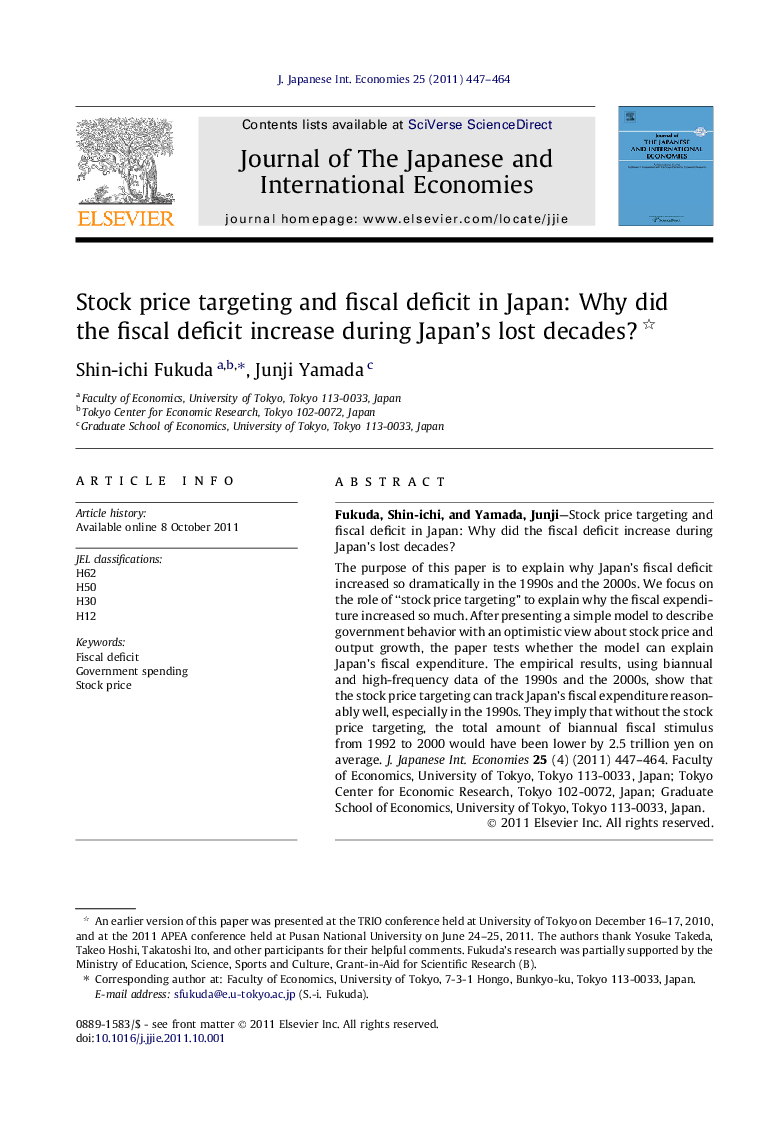| Article ID | Journal | Published Year | Pages | File Type |
|---|---|---|---|---|
| 964963 | Journal of the Japanese and International Economies | 2011 | 18 Pages |
The purpose of this paper is to explain why Japan’s fiscal deficit increased so dramatically in the 1990s and the 2000s. We focus on the role of “stock price targeting” to explain why the fiscal expenditure increased so much. After presenting a simple model to describe government behavior with an optimistic view about stock price and output growth, the paper tests whether the model can explain Japan’s fiscal expenditure. The empirical results, using biannual and high-frequency data of the 1990s and the 2000s, show that the stock price targeting can track Japan’s fiscal expenditure reasonably well, especially in the 1990s. They imply that without the stock price targeting, the total amount of biannual fiscal stimulus from 1992 to 2000 would have been lower by 2.5 trillion yen on average.
